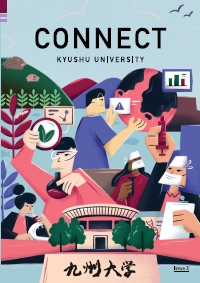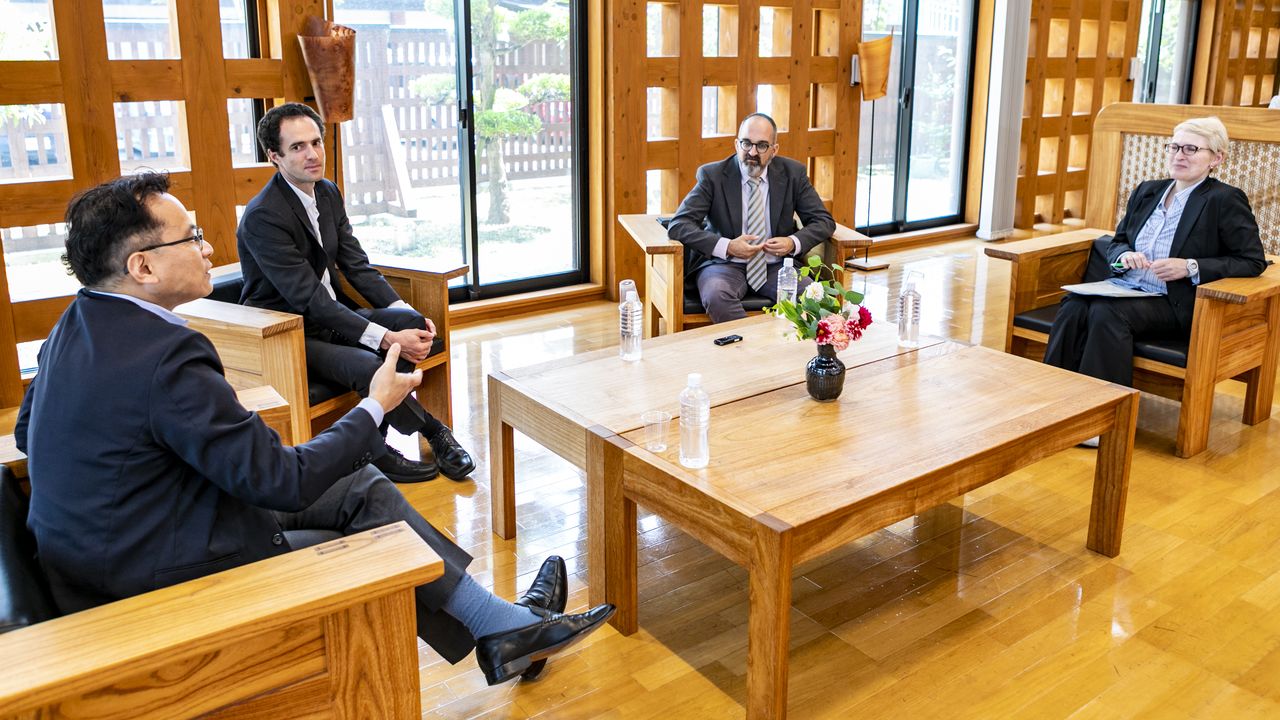
Reimagining inbound programs with Japan in Today's World alumni
Japan in Today’s World (JTW) is Kyushu University’s long-standing inbound exchange program that provides opportunities for students from 126 partner universities to study in Fukuoka, Japan. JTW students can choose between a one-semester or year-long program, both taught in English. If students wish to they can also take Japanese language courses and conduct an independent study with university faculty. The program does not require Japanese language proficiency.
Toshiyuki Kono, one of Kyushu University’s Executive Vice Presidents, and Natalie Konomi, Professor in the Global Strategies Office, met with JTW alumni Daniel Rakove and Ran Zwigenberg to talk about the program’s future. Both alumni have since established successful careers spanning Japan, the US and beyond.
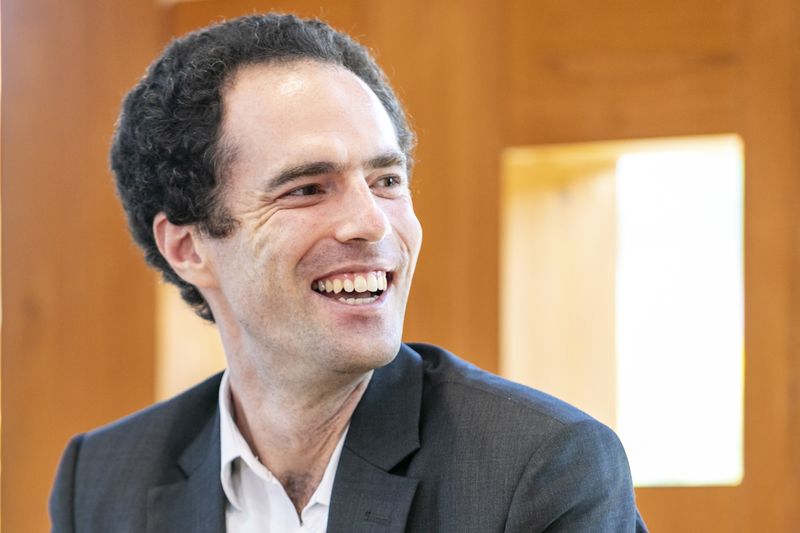
Daniel Rakove
US State Department Foreign Service Officer; Consul for Political and Economic Affairs, US Consulate Fukuoka at the time of the interview.
Rakove has 12 years of global experience in public service, including in Mongolia, Washington D.C., Bangladesh, South Korea, and Japan.
NK Why did you come to Japan under the JTW?
DR ‣ I wanted to study the language and experience living in Japan.
RZ ‣ I wanted to study the language too.
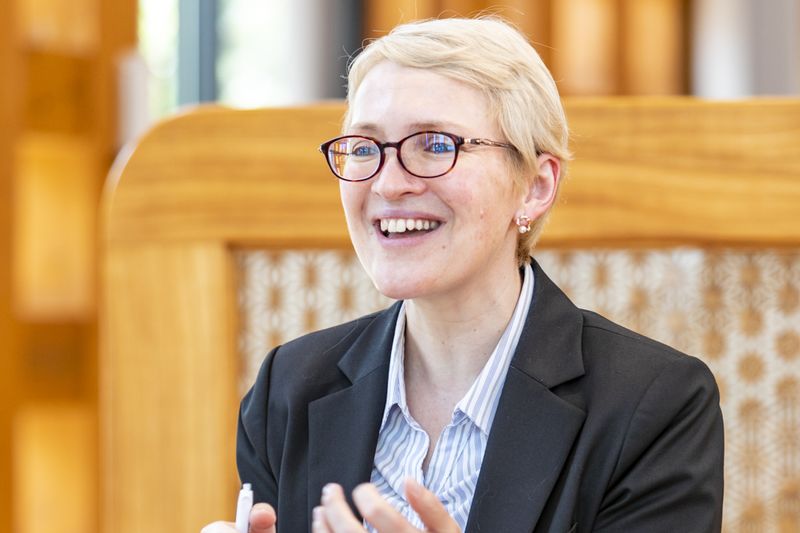
NK Why did you choose Kyushu University?
DR ‣ In my freshman year, there were three options for studying abroad in Japan: JTW as well as other programs in Kyoto and Tokyo. I chose Kyushu University because it had options to take courses in Japanese. I spent my entire junior year (2003–2004) at the university.
It was my first chance to live overseas for a full year. In my Modern Japanese Literature class, we were studying the works of great Japanese authors like Mori Ogai. I would work with an electronic dictionary to get through one book a week. By the end of class, I felt very accomplished—having learned another country’s literature and culture in a different language. I became more confident in my Japanese and my ability to live abroad.
I eventually came back as Consul for Political and Economic Affairs in the US Consulate in Fukuoka with a goal of establishing people-to-people ties between Fukuoka, Kyushu, and the US. In this role, I am proud to have recruited nine startups in Fukuoka and Busan in South Korea for an English-language pitch contest, judged by a visiting American angel investor. Two of the participating startups were led by researchers at Kyushu University.
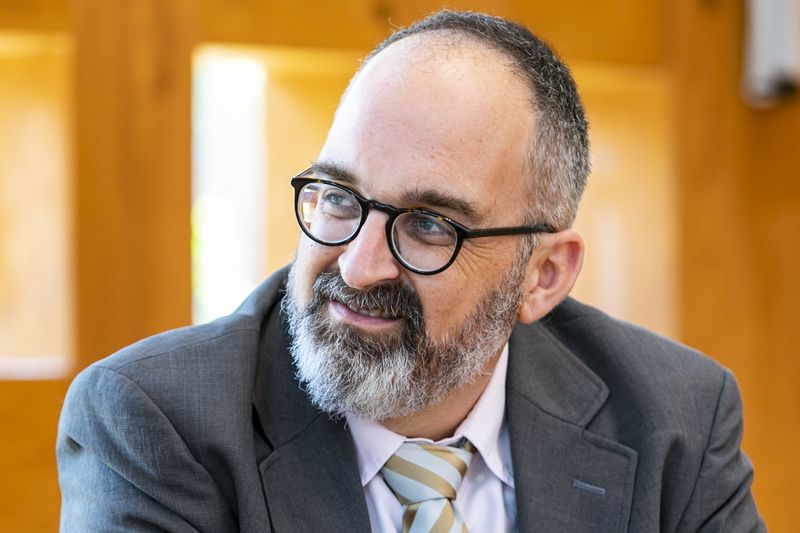
Ran Zwigenberg
Associate Professor of Asian Studies, History, and Jewish Studies, Pennsylvania State University.
At Kyushu University, Zwigenberg is a Visiting Scholar in the International Student Center. His work concerns the World War II memory of the atomic bomb, Hiroshima and Nagasaki, and the Holocaust.
RZ ‣ I spent a whole year here before going to graduate school between 2004 and 2005. I chose the program because it was in Fukuoka, because the program is integrated in the university, and because Japanese students were also taking these courses. Through the connections I made at the university, I eventually made studying Japan my career.
Now, I’m back as a professor conducting research in Nagasaki and Hiroshima. Fukuoka is right in between the two cities, enabling easy travel. Fukuoka is a great gateway, not just to the rest of Japan but also to South Korea and China.
I felt very accomplished—having learned another country’s literature and culture in a different language.
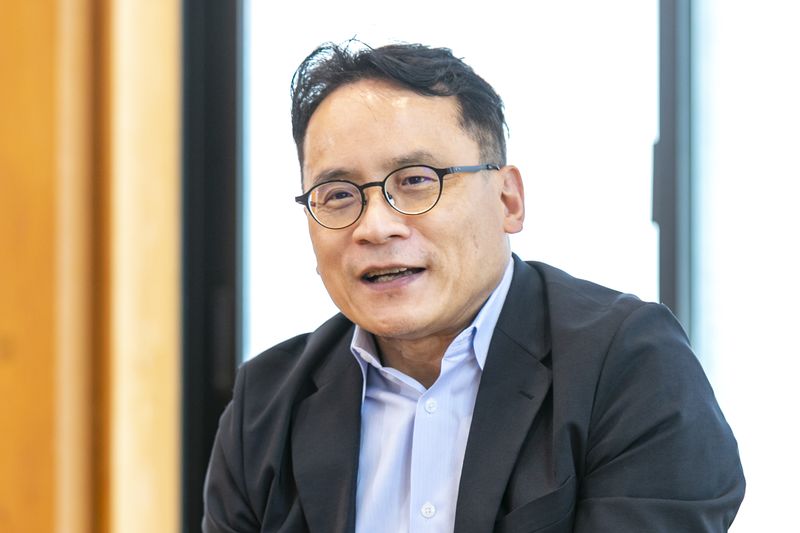
TK While JTW has served us well, we believe it is the time for a new inbound program to boost Kyushu University’s reputation. What do you think we should do?
RZ ‣ First and foremost, it should have the element of intensive language training. That was our main reason for participating in the exchange program. Company internships and work experience while studying abroad would also be great. Students are very CV-focused and are under great academic and financial pressure. Many can only afford short-term programs or those with a scholarship.
Additionally, at Pennsylvania State University, our South Korea popular culture class gets over 400 enrollments. Because travel between Busan and Fukuoka is just three hours by jet ferry, I suggest making an Asian program and including a boat trip to Busan.
DR ‣ I agree. When I was at Kyushu University, my Korean language professor who was affiliated with the Korean Research Center allowed me to join him on research trips to Busan and Seoul. I remember taking Korean language classes in Japanese and seeing so many connections between the two countries.
TK ‣ That’s interesting! We should explore developing such a program. In fact, we just started an annual exchange with our strategic partner Seoul National University.
Come here, immerse yourself, travel, and make friends. This is a once-in-a-lifetime opportunity.
NK The next program could be ‘Gateway to East Asia.’ Would you like to share a final message for prospective students?
DR ‣ Science was never my focus, but because of my work I’ve visited many Kyushu University labs. The International Institute for Carbon-Neutral Energy Research is working toward a clean energy world, the Research Institute for Applied Mechanics is doing pioneering research on marine microplastics, and the Agriculture department conducts fascinating insect science, such as using silkworms to produce vaccine candidates. So I recommend that students majoring in science should also consider Kyushu University.
RZ ‣ Come here, immerse yourself, travel, and make friends. This is a once-in-a-lifetime opportunity. At Kyushu University, you can really dive into another culture—and not just Japan’s. You are so close to South Korea, Taiwan, and China. It’s easy to just cross the straits.
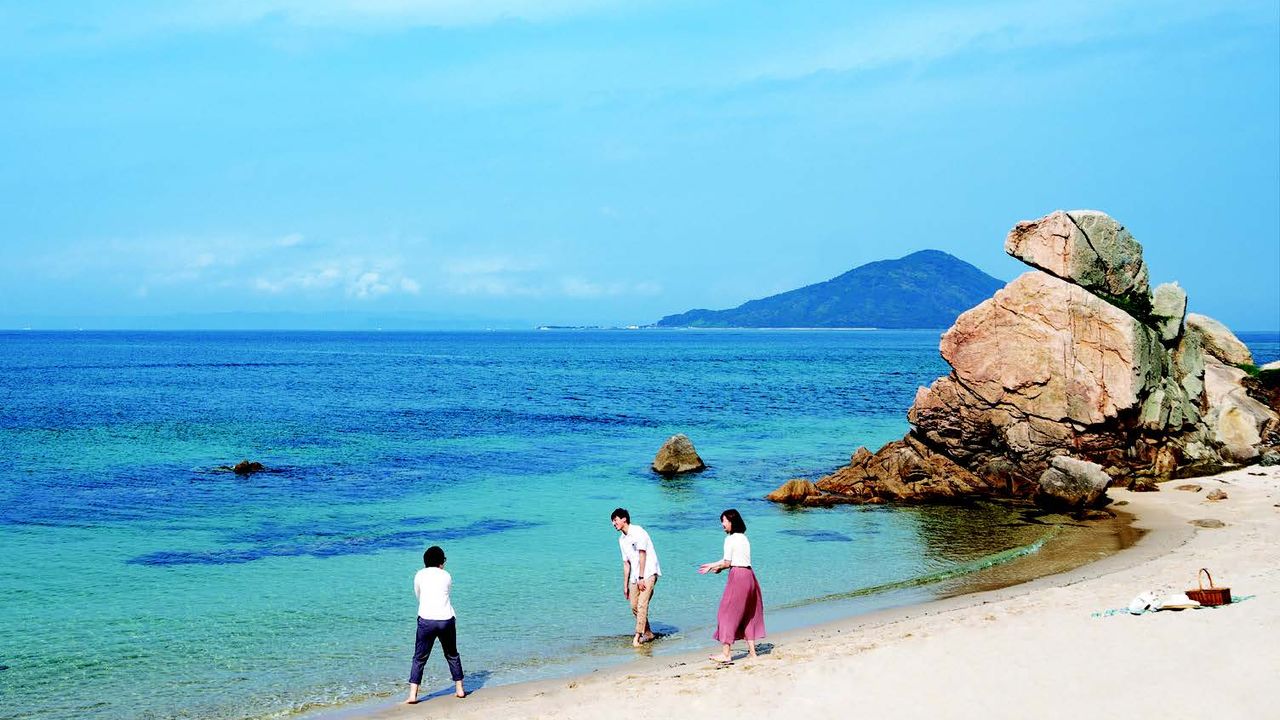
This article first appeared in issue 3 of Connect, Kyushu University's English-language magazine. View other articles online, download a PDF (4.5 MB) of the full issue, or browse previous issues to learn about more exciting things happening at Kyushu U.
































